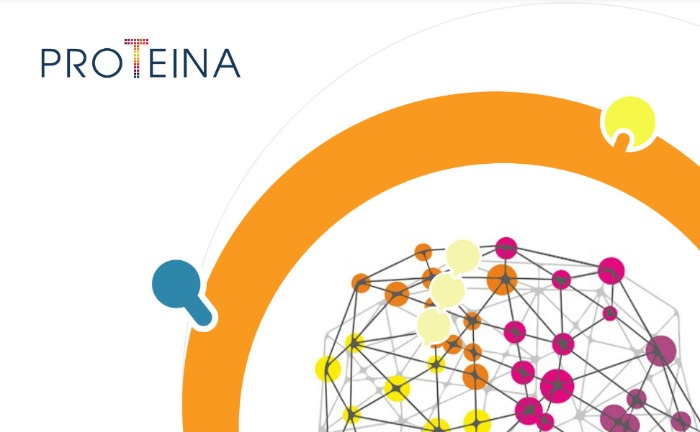Bio & Pharma
S.Korean Proteina gets offers from global pharmaceutical companies
Launched with Samsung's support, this diagnostic startup could revolutionize cancer detection
By Dec 12, 2022 (Gmt+09:00)
2
Min read
Most Read
LG Chem to sell water filter business to Glenwood PE for $692 million


Kyobo Life poised to buy Japan’s SBI Group-owned savings bank


KT&G eyes overseas M&A after rejecting activist fund's offer


StockX in merger talks with Naver’s online reseller Kream


Mirae Asset to be named Korea Post’s core real estate fund operator



Proteina CEO Yoon Tae-young on Sunday told reporters, "Next month, a global pharmaceutical company based in Chicago is pursuing a contract (with us) to jointly conduct Phase 1 clinical trials for blood cancer."
If concluded, the Korean company will be the world's first to conduct clinical trials on humans with a global pharmaceutical company based on protein-protein interaction (PPI) technology. Earlier in August, Proteina is known to have received contact from other global pharmaceutical companies to jointly develop substances from the animal testing stage.
A life sciences professor at Seoul National University, Yoon founded Proteina in 2015 while a professor at the Korea Advanced Institute of Science and Technology, aka KAIST. The basis for his company's launch came in 2014, when he received support from Samsung Electronics Co. for a project to develop next-generation technology.
As a basic building block of the human body, protein is useful in the development of new drugs. Cancer occurs when certain proteins fail to properly function or if the body has too many of them, so most medicines for fighting the disease either help these proteins do their jobs or prevent the large-scale production of certain types.
Many drugmakers have developed medicine that control the functions of one or two types of proteins. Proteina, however, went beyond this by focusing on the interactions of proteins that recognize and bind to each other to assess the potential for producing proteins C or D by quantitatively measuring interactions between proteins A and B instead of merely observing their presence or absence.
An estimated 650,000 PPI in the human body are involved in cell composition, meaning a wide of candidate proteins could be used in the development of drugs and diagnostic agents.
To use PPI for diagnosis, the target proteins must be well extracted with no damage. CEO Yoon, an expert in the field who has studied membrane proteins for almost 10 years, used membrane protein technology formed by cell membranes. Such proteins are effective in detecting PPI because of their role in accepting external substances or conveying signals.
"Olink of Sweden and Quanterix of the US are competitors that measure PPI, but Proteina is the world's only company to apply it to clinical sample analysis," he said. "Next year, we will unveil a solution for evaluating medicinal effects."
Write to Jeong Min Nam at peux@hankyung.com
More to Read
-
 Bio & PharmaSamsung Biologics in CDO deal talks with global pharma firm
Bio & PharmaSamsung Biologics in CDO deal talks with global pharma firmNov 07, 2022 (Gmt+09:00)
2 Min read -
 Bio & PharmaSamsung Biologics, Samsung C&T extends investment in US biotech firms
Bio & PharmaSamsung Biologics, Samsung C&T extends investment in US biotech firmsAug 17, 2022 (Gmt+09:00)
1 Min read -
 Corporate investmentSamsung to invest $355 billion in chip, biotech, 6G over five years
Corporate investmentSamsung to invest $355 billion in chip, biotech, 6G over five yearsMay 24, 2022 (Gmt+09:00)
3 Min read
Comment 0
LOG IN


